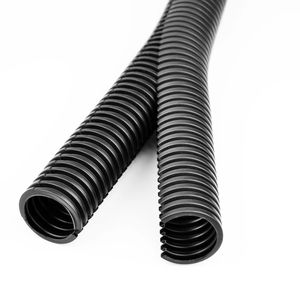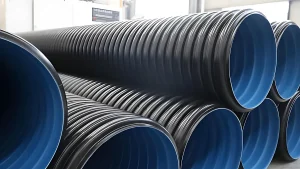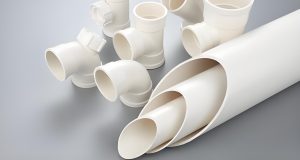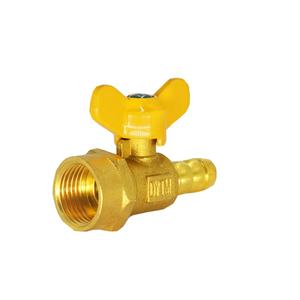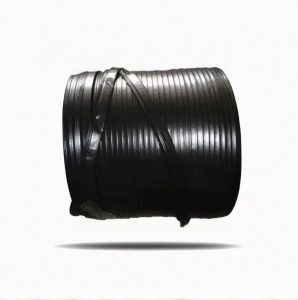LUOYANG DATANG ENERGY TECH CO.,LTD

Which Pipe Is Best For Water Supply
Unlocking the Circulation: Your Guide to Choosing the Perfect Water System Pipe
(Which Pipe Is Best For Water Supply)
Ever before wondered what brings that tidy, crucial water from the city main or your well ideal to your faucet? It’s the network of water system pipelines concealed within your walls and underground. Selecting the ideal one isn’t simply pipes facts; it has to do with making sure risk-free water, avoiding leakages, and conserving money lasting. Forget the one-size-fits-all solution. The best pipe relies on your task, budget, and local regulations. Allow’s discover your options.
1. What Specifies a Terrific Water System Pipeline? .
Think about a water system pipe as the lifeline of your plumbing. Its main job is basic: deliver clean water under stress wherever it’s needed inside your home or structure. But what makes one pipe much better than another? A number of vital aspects matter many. Sturdiness is critical. A good pipe must stand up to corrosion from water and dirt chemicals. It has to handle the water pressure without bursting or leaking over many years. Material safety and security is non-negotiable. The pipeline can not leach hazardous chemicals or metals into your alcohol consumption water. Alleviate of installment affects labor costs. Some pipelines need special devices or abilities to attach. Cost is constantly a consideration, considering both the preliminary pipeline cost and long-lasting maintenance. Lastly, versatility can be essential for browsing limited spaces throughout installation. The ideal pipe balances these variables for your details scenario.
2. Why Pipeline Option Matters for Your Water Supply .
Picking the incorrect supply of water pipe can bring about migraines. Old materials like galvanized steel rust inside over time. This corrosion limits water circulation, lowers pressure, and at some point infects your water with flakes and a metal preference. Lead pipes, still located in older homes, position significant health dangers. Leakages are an additional major trouble. A falling short pipe hidden in a wall surface or under a slab can trigger substantial water damage, mold growth, and pricey repair services. Cold is a risk in chilly environments. Some pipelines are most likely to rupture if frozen water expands inside them. Poor water top quality is a straight outcome of harmful products. Plastic pipelines utilizing the wrong resins could impart weird tastes or launch chemicals. Longevity effects your budget. A cheaper pipeline needing replacement in 15 years costs greater than a resilient one lasting 50 years. The right pipe option protects against these problems, making sure trustworthy, risk-free water for years.
3. Just how to Choose Your Ideal Water Supply Pipeline .
So, exactly how do you determine? Start by looking at the primary contenders. PEX (cross-linked polyethylene) is hugely popular currently. It’s flexible, making installation fast, resists scale and deterioration, deals with cold far better than stiff pipes, and is generally cost effective. Copper is a long-time requirement. It’s sturdy, resists germs, and helps hot and cold lines. Copper is much more expensive than PEX and requires soldering skills. CPVC (Chlorinated Polyvinyl Chloride) is a rigid plastic. It’s less costly than copper, easy to reduce and glue, and corrosion-resistant. CPVC can end up being breakable with time, particularly with warm water, and may convey a small plastic preference initially. PVC prevails for main supply lines outside the house but isn’t normally rated for hot water or high stress inside . Neglect galvanized steel or lead for brand-new installations; they are dated and troublesome. Match the pipe to your needs. Is it for a whole house repipe (PEX or copper typically win)? Simply a small repair work (CPVC could be most convenient)? A hot water line (Copper or PEX take care of warmth well)? Examine your local building regulations too. Some locations limit certain products. Consider your spending plan and whether you’re DIY-ing or hiring a pro. A plumbing technician can use valuable recommendations based upon your home and neighborhood water problems.
4. Supply Of Water Pipe Applications: From Houses to High-Rises .
Water supply pipelines strive in various locations. Inside your home, smaller size pipes (like 1/2-inch or 3/4-inch) branch out from the major line. They feed sinks, commodes, showers, washing devices, and water heaters. PEX and copper dominate right here for their balance of security and efficiency. For the primary line bringing water from the road meter to your residence, bigger size pipes (like 1-inch or larger) are utilized. Long lasting choices like copper, HDPE (High-Density Polyethylene), or particular PVC kinds prevail below, hidden underground. Community water systems count on massive pipes, typically constructed from pliable iron, concrete, or specialized large-diameter plastics, to move water from treatment plants throughout the city. Apartment and workplaces require robust systems as well. Copper and PEX are constant selections, occasionally utilizing customized types for higher pressures or fire lawn sprinkler. Even commercial setups make use of water system pipes, typically requiring specific materials immune to chemicals or severe temperature levels. The core job continues to be delivering pressurized drinkable water reliably.
5. Supply Of Water Pipe FAQs: Your Leading Concerns Answered .
(Which Pipe Is Best For Water Supply)
Individuals usually ask comparable inquiries about supply of water pipes. Is PEX risk-free for alcohol consumption water? Yes, contemporary PEX meets strict safety and security criteria (like NSF/ANSI 61) for drinkable water. Ensure it’s accredited. How long should pipes last? Copper can last 50+ years. PEX and CPVC are normally ranked for 40-50 years. Correct setup matters considerably. Can I mix pipe types? Yes, however use the proper change installations (like brass adapters) to attach PEX to copper or CPVC. Avoid mixing steels straight to stop rust. What causes loud pipelines? This is typically “water hammer”– a pressure rise when a valve closes fast. Installing water hammer arrestors normally fixes it. It can also be loose pipes banging. Why is my water pressure low? Check for blocked aerators initially. If not, the issue could be a partially shut major shutoff, old galvanized pipes obstructed with corrosion, or a problem with the municipal supply. A plumbing can diagnose it. When should I replace pipes? Signs include tarnished water, regular leaks, really low water stress, or if you recognize you have old lead or galvanized pipes. A professional evaluation is smart for older homes.


